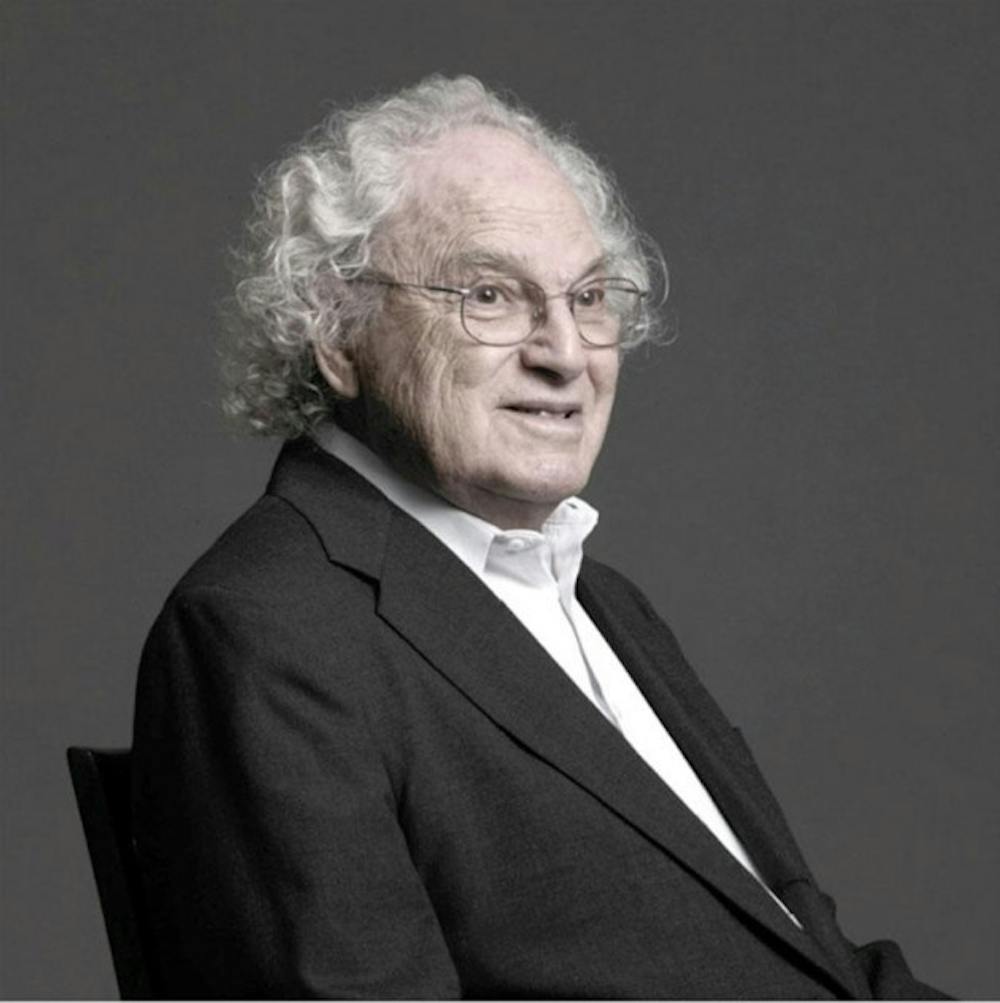Dr. Herbert A. Hauptman, a UB professor and Nobel Prize recipient, died of natural causes at the age of 94 on Sunday.
Hauptman and Jerome Karle received a Nobel Prize in 1985 for their groundbreaking work in the field of X-ray crystallography, which uncovered the structure of molecules. He was a professor in UB's structural biology and biophysical science departments, as well as a distinguished professor in the department of computer science.
Hauptman most recently served as president of the Hauptman-Woodard Medical Research Institute (HWI), a biomedical research institute that is a part of the Buffalo Niagara Medical Campus.
"The University at Buffalo community is deeply saddened by the passing of Dr. Herbert Hauptman, one of the most eminent and influential faculty members in UB's long history," said UB President Satish K. Tripathi in a press release."[He is] widely considered to be the most important scientist ever to have lived in Western New York."
Twenty-five years ago, Hauptman's work was considered incorrect and impossible by the scientific community, according to Professor William Duax, H.A. Hauptman distinguished scientist at HWI.
Duax said Hauptman proved the impossible and "changed the course of molecular structure determination."
Hauptman's innovations and mathematical methods have been incorporated into computer programs that are used internationally to "unravel the three-dimensional structure of molecules," according to Professor Robert Blessing, chairman of the structural biology department.
Duax views Hauptman's legacy as "unending" because his developments in the field are vital to almost all drug design used today.
"Buildings tumble; an architect's work is very hard to maintain, but scientific work stands forever because it gets built upon by subsequent generations," Duax said.
Hauptman's colleagues held him in a high regard. He was viewed as a kind and inspirational spirit, according to Blessing.
"When one of the secretaries contracted cancer, he was like a father to her; she had lost her husband and she was still a young woman," Duax said. "He was a very supportive individual for her in personal ways. He did remarkable things."
It is the simple and nice gestures that Duax and Blessing will miss most about Hauptman. He was a generous man, who offered rides home to Duax and explanations of intricate mathematical concepts to Blessing. He was patient and always willing to teach.
"He was a vital intellectual presence in the university and a fine teacher," Blessing said. "He had a great impact on the minds he came in contact with."
One of the things Hauptman enjoyed most after receiving the Nobel Prize was being asked to speak to high school and grade school students. A wealthy man even paid for a direct flight to take Hauptman to Indiana to talk to a high school class.
"He always took whatever time was necessary to talk to young people," Duax said. "His behavior was an inspiration."
Hauptman had no prejudices, and even witnessed Dr. Martin Luther King, Jr.'s "I Have a Dream" speech with his young daughter. He spent his whole life supporting the equal treatment of women, minorities and young people, according to Duax.
"He was a citizen of the world. He is mourned by the people in his discipline of X-ray crystallography; there are at least 20,000 [people] in the world who are sorry to hear of his passing." Duax said. "He was pretty much grandfather of the community, that has at least 20 Nobel Laureates in its ranks."
Over the years, more crystallographers have received Nobel Prizes than in any other group of scientists. Duax thinks it's "amazing [that Hauptman] is considered the leader of such a community."
Ultimately, one of Hauptman's greatest legacies will be the institution that bares his name.
"[The Howard-Woodard Medical Research Institute] is very high on account of [Hauptman's] presence and the contributions he made are very highly regarded worldwide," Blessing said. "It was often said the HWI was known better abroad than in Buffalo or even within the university. It does have an international reputation for excellence, and I think that will continue in his legacy."
Email: news@ubspectrum.com





